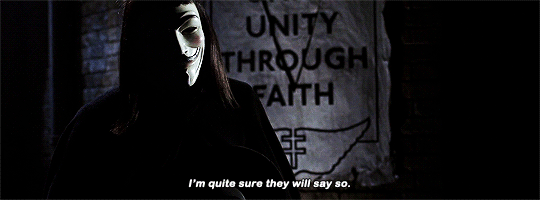No, this is not a thread about how hot Beth Toussaint was (and/or is) or her resemblance to Sarah Connor. It's simply about Ishara Yar turning out to be unexpectedly interesting as a character who had her own particular sense of integrity.
I recently rewatched "Legacy." And I realize afresh how much I like the direction it took with Tasha's sister.
In most episodes of TNG, the superiority of Federation culture in a situation like the one Turkana IV finds itself in would be unquestioned. Who wouldn't want to escape that place and lead a fully realized life in a free, "utopian" society?
But Ishara plays against type. She has been essentially raised in a militia in which she started out as the equivalent of a child soldier. The cadres of Turkana IV aren't quite the "rape gangs" of Tasha's recollections (perhaps just a snapshot in time), but neither are they pretty. They're the ruthless products of a collapsed society and quite convincingly sold that way, and this is one of the TNG episodes that really sells the naivete of the Enterprise crew's assumptions of the universal appeal of their own lifestyle without necessarily undercutting that appeal. It just straight-ahead plays Ishara as someone whose loyalty to the Coalition runs deeper than they can grasp.
And yet Ishara isn't immune to that appeal. She doesn't have to plead with Data to leave at the climax of her own invasion plot. She doesn't have to reassure him -- a being who supposedly (wink-wink) has no feelings -- that her friendship with him wasn't entirely feigned. She wasn't entirely unmoved by her time on the Enterprise: she's just a person who had to weigh that against long loyalty to the organization that raised and protected her for her entire adult life. Of course she made the choice she made. Being tempted is never going to be the same thing as throwing over all the "ideals" (even corrupt ones) that gave your life meaning for fifteen years.
I loved the honesty of that choice. For my money, it made Ishara into one of the most interesting guest stars on an episode of TNG. And Toussaint did pretty solid work in selling her multifaceted and complicated nature. I do sometimes wish we had gotten to see more of her... although given her loyalty to what essentially is a gang war on an isolated planet, I don't suppose that was ever likely.
I recently rewatched "Legacy." And I realize afresh how much I like the direction it took with Tasha's sister.
In most episodes of TNG, the superiority of Federation culture in a situation like the one Turkana IV finds itself in would be unquestioned. Who wouldn't want to escape that place and lead a fully realized life in a free, "utopian" society?
But Ishara plays against type. She has been essentially raised in a militia in which she started out as the equivalent of a child soldier. The cadres of Turkana IV aren't quite the "rape gangs" of Tasha's recollections (perhaps just a snapshot in time), but neither are they pretty. They're the ruthless products of a collapsed society and quite convincingly sold that way, and this is one of the TNG episodes that really sells the naivete of the Enterprise crew's assumptions of the universal appeal of their own lifestyle without necessarily undercutting that appeal. It just straight-ahead plays Ishara as someone whose loyalty to the Coalition runs deeper than they can grasp.
And yet Ishara isn't immune to that appeal. She doesn't have to plead with Data to leave at the climax of her own invasion plot. She doesn't have to reassure him -- a being who supposedly (wink-wink) has no feelings -- that her friendship with him wasn't entirely feigned. She wasn't entirely unmoved by her time on the Enterprise: she's just a person who had to weigh that against long loyalty to the organization that raised and protected her for her entire adult life. Of course she made the choice she made. Being tempted is never going to be the same thing as throwing over all the "ideals" (even corrupt ones) that gave your life meaning for fifteen years.
I loved the honesty of that choice. For my money, it made Ishara into one of the most interesting guest stars on an episode of TNG. And Toussaint did pretty solid work in selling her multifaceted and complicated nature. I do sometimes wish we had gotten to see more of her... although given her loyalty to what essentially is a gang war on an isolated planet, I don't suppose that was ever likely.
Last edited:


